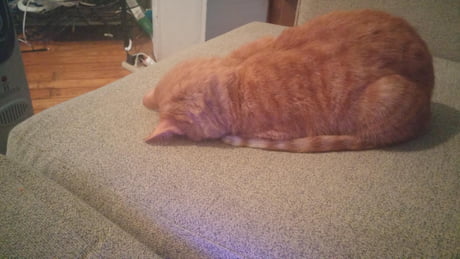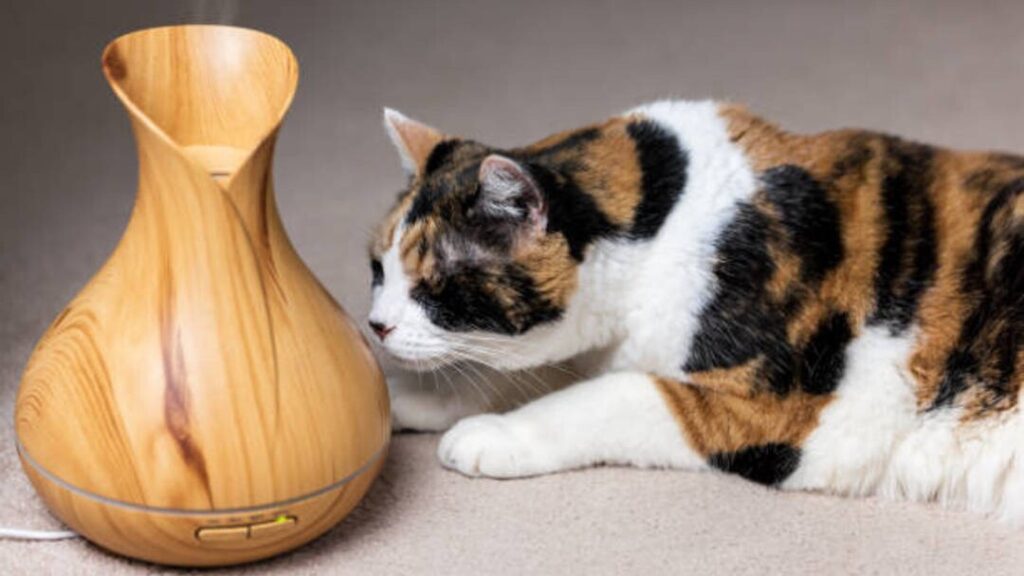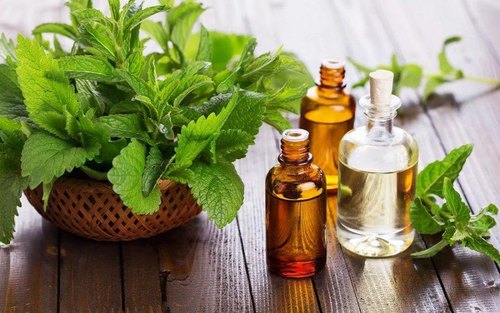With its distinctly sweet, musky, and spicy aroma, Patchouli oil is a beloved essential oil at home.
People have used it to freshen their homes for centuries if not millennia. This special essential oil is a base ingredient in many perfumes and cosmetics. It also has many medicinal and aromatherapy benefits as well as antibacterial properties and can be used to add flavor to foods and drinks.
Patchouli is no doubt a beneficial essential oil. However, like all pet parents, you must think about your kitty’s safety.
You are probably already wondering whether this exceptional essential oil is dangerous to your cat or not. Here, we break down everything for you.
What Is Patchouli Oil?
Patchouli oil is extracted from the leaves of the infamous patchouli plant (Pogostemon cabli).
The plant is an upright, evergreen, and bushy herb with origins in Southeast Asia. Its leaves are lightly fragrant and its flowers white with violent marks.
The oil is derived by steam distillation and bears a strong, intoxicating, and somewhat sweet aroma. The scent can also be described as dark and musky-earth—almost like that of wet earth.
Even when diluted, patchouli aroma will still fill the room. Because of this, it is commonly used as a base note for perfumes. It is a fixative meaning it is known to extend the life of other perfume ingredients.
The oil also has other uses like treating skin conditions (like acne, dermatitis, cracked skin, and dry skin), appetite control, easing cold symptoms and stomach upsets, relieving depression, provide relaxation feelings, helping with hair dandruff.
There are a couple of ways to use the oil. You can diffuse it in a vaporizer or an aromatherapy diffuser and let the sweet scent fill your space. It can also be combined with other oils such as jojoba and lavender then applied directly to the skin to derive its healing benefits.
Another common method is burning a candle made with patchouli oil to release it into the environment.
Is It Safe For Cats?

Patchouli in itself has not been listed anywhere as toxic or non-toxic. However, it falls in the category of essential oils which means it poses a danger to your kitty.
According to Pet Poison Helpline, essential oils are absorbed by the body either orally or through the skin then metabolized by the liver.
Sadly, cats do not have the liver enzyme to metabolize these compounds and get rid of the toxic stuff. The website also says that kitties are highly sensitive to phenols and phenolic compounds.
Patchouli oil is a very strong essential oil. Even humans cannot apply it on the skin directly without adding other less-powerful oils such as avocado and jojoba.
Now imagine having your kitty inhale or absorb the oil through her skin. Her body is just not built to handle such a strong compound. She will be lucky if she makes it after inhaling or ingesting a huge amount of the oil.
To add to that, patchouli has alpha-guaiene, patchoulol, and bulnesene—also known as phenolic compounds. These are corrosive compounds—hydrocarbons that are present in household cleaners.
A cat doesn’t have the ability to remove phenols and phenolic compounds from her bloodstream. If she ingests or exposes her skin to them, the compounds will quickly reach toxic levels, causing a host of symptoms. If left untreated, death is inevitable.
What to Look Out For
When exposed to concentrated essential oils, cats will exhibit a range of symptoms to indicate poisoning.
First, your fur baby will start to twitch if she inhales a huge amount of Patchouli oil or ingests it. She may also start to drool, pant, stagger, and stumble. Diarrhea and vomiting are also possible.
When the toxicity advances, neurological effects such as seizures and paralysis are expected.
Before it gets to that, you should contact the vet. Things can get out of hand real fast.
Tips for Protection

Essential oils, in general, are not safe around cats. In small concentrations, you can get away with it.
If you must use patchouli oil, at the very least ensure your cat is in a well-ventilated area. If you are in a closed room with no windows, don’t attempt to put your diffuser on or burn the candle.
Also, if possible, use a diffuser instead of concentrates. This brings the toxicity level down by a greater percentage.
Place the diffuser in an open space and ensure the kitty is far from it and most importantly its cords.
Remember that oil droplets can land on your cat’s fur which can be ingested later. Kitties are especially pros when it comes to climbing high places, so be on the lookout at all times.
Finally, it is in your best interest to speak to your vet before using patchouli oil around your pets.
Parting Thoughts
Being a cat parent means double-checking everything to make sure it is safe for your fur baby.
Whether it is house plants, garden flowers, house cleaning products, or essential oils, they must pass the safety protocols for your pet.
Patchouli oil doesn’t seem to score very well in the safety department. If you have a kitty at home, you are better off without it.

Hi! I am Eleanor Price. I started this website after my cat, Louie, almost died from a case of botulism (a type of food poisoning often caused by bacteria that grow on food items). Turned out that my cat’s diet was the problem. I have made it my duty to provide the best information and recommendations about everything cat lovers need to know about their felines’ health and wellbeing. My goal is to find the most informative content on anything feline-related and share it with fellow hardworking kitty lovers.

